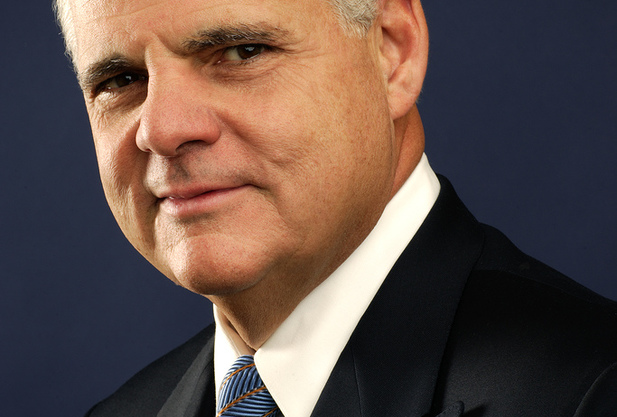Joe Tucci, the head of storage systems titan EMC, has earned a reputation for revitalising ailing technology companies. But unlike many turnaround CEOs, his formula goes much further than slash-and-burn operational fixes. He has proved he has the knack of spotting strategic industry shifts and turning his technology charges towards those new horizons.
Tucci first built that reputation by overseeing a dramatic turnaround at Wang Laboratories. In 1993, when Tucci took over the CEO's job, the office computing giant had filed for Chapter 11 bankruptcy protection after a disastrous decade in which it had diversified into everything from minicomputers to document scanners. Observing that customers were crying out for services companies to take over their networking and desktop management hassles, he changed Wang's direction, redefining its business over six years with the help of 10 acquisitions, including Olivetti's services business, Olsys. That transformed Wang Global (as it became) from a $1 billion computer company in 1994 to a more than $3.5 billion services organisation in 1999 – when it was sold to the Dutch services giant Getronics.
While EMC is no Wang, there are parallels. As Tucci took the reigns at the world’s largest storage company in January 2001, EMC was tumbling from a dot-com induced peak. Its share price, which had topped $100 in September 2000 was on its way to a $4 low, and annual profits of $1.8 billion in 2000 would turn into a $508 billion loss in 2002 as sales fell a painful 40%.
Tucci claims his approach to turning around both companies was simple: "We needed to stabilise, stop bleeding cash and we needed to do that fast," he said. "After that we had to invest in the future." And that meant pointing the companies in new directions.
For all his financial wizardry in reversing fortunes, it is the ability to spot and invest in new technology areas that has cemented Tucci's reputation. And that eye for industry change should come as no surprise given his background.
A native of Brooklyn, he first studied computer science at Manhattan College when lecturers went looking for candidates for a foundling degree course. This was one of the first to offer computer science to degree level, and its sponsors believed, without much to go on, that ideal students would have a strong background in either mathematics or music. Tucci's skills with a guitar ensured him a place.
After taking a masters degree at Columbia, he joined electronic goods giant RCA as a computer programmer before working his way into the upper echelons of IT as president of information systems at Unisys in the US with its formation from the takeover of Sperry by Burroughs. Acquisitions have played a big part in his strategic thinking ever since.
In the past five years, EMC has spent $4.3 billion on 25 major acquisitions, extending the company’s interests way beyond its previously laser-like focus on high-end disk storage systems. All of the standout deals have been in software and have included content management software maker Documentum, virtualisation software company VMware, back-up and archiving vendors Legato and Dantz, and network and fault management software vendor SMARTS.
Tucci's vision here centres on the notion of 'information lifecycle management' – the idea that digital information needs to be actively managed from its creation though its storage and archiving, to its ultimate deletion. ILM is the only way businesses will be able to cope with their burgeoning data storage requirements, Tucci argues. And EMC has built the stack to help them. "[ILM] is something that everyone is talking about, but it took us to put real meat behind it. We've now got the storage, the software, the services and the speed to take that to market that gives us differentiation," says Tucci.
If Tucci has any regrets, they lie in a sense that he did not have time to complete his vision for Wang. "We didn’t get the opportunity to go that extra mile," he says, and the $1.9 billion price offered by Getronics was simply too good to turn down.
He does not foresee that kind of approach getting in the way of his vision for EMC. With revenues of $8.3 billion in 2004, and a market cap of roughly $35 billion, Tucci doesn't "spend one minute worrying about EMC being acquired" – even though successful execution of his plans for EMC means taking on and beating a formidable array of competitors that includes IBM, Hewlett-Packard, Hitachi and Sun.
See also: EMC unveils cheap SAN for SMEs







